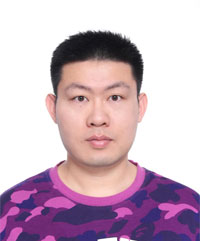Invited Talk: Dawei Zhang, Harbin Engineering University
Special session 7: Electromagnetic Environment Effects and Adaptability Analysis

Short Bio:
Dawei Zhang was born in Heilongjiang Province, China. He received the B.S. degree in Electronic Information Science and Technology and the M. S. degree in Radio Physics from University of Electronic Science and Technology of China (UESTC), Chengdu, Sichuan, China, in 2011 and 2014, respectively, and the Ph. D. degree in Information and Communication Engineering from Harbin Institute of Technology (HIT), Harbin, Heilongjiang, China, in 2019. In 2019, he joined the College of Information and Communication Engineering, Harbin Engineering University, China, as an assistant professor. His research interests include metamaterials, spoof surface plasmon polaritons and microwave passive devices. He serves as a reviewer for several journals, including Optics Letters, Optics Express, and Optical Materials Express.
Title: Spoof Surface Plasmon Polaritons Supported by Substrate Integrated Waveguide with Arrays of Holes
Abstract:
This work presents an approach to develop spoof surface plasmon polaritons (SSPPs) in substrate integrated waveguides (SIWs) with simple geometries (arrays of rectangular holes). Dispersion properties of both SSPPs supported by a SIW with a rectangular hole and the traditional SSPPs based on a single-conductor metallic strip with the same hole are compared. Moreover, a smooth transition built by stepped impedance transmission lines with gradient holes is designed for high-efficiency mode conversion. Consequently, an SSPP waveguide is constructed by a SIW with uniform holes and the proposed transition, and the transmission characteristics of the waveguide are simulated for validation. The simulated bandwidth can reach as high as 100.1% covering a range from 4.34 to 13.05 GHz, which shows a good agreement with the results in the dispersion diagram. |

